The Pulitzer Prize in fiction was awarded this past week, a joint award to Trust by Hernan Diaz and Demon Copperhead by Barbara Kingsolver. I did not realize it was Pulitzer day until after all the awards were announced, which is unlike me, as most years I try to write a column - always incorrectly - predicting which book will win.
Because I haven’t read either winning book, I figured I’d try to have a little fun with the Pulitzer Prizes this week by modeling a version of an exercise I’ve done with students as a way to help them reflect on their cultural knowledge and experiences.
I’m a big believer in having students write from positions of expertise because it often leads to better writing, and also when students are able to recognize their own expertise, they are motivated to build on that knowledge, to become more expert. This is a virtuous cycle that hopefully they’ll continue to employ throughout their lives.
But young people are often not aware of having any expertise that they think holds currency in a classroom. Indeed, much of school is about reminding you of all the stuff someone else says is important that you don’t know.
But experiences are a form of knowledge. They are, in fact, a great source of knowledge.
That said, it’s hard to just sit down and say, “I’m going to write about my experiences with the culture,” and come up with something to say.
As I sit here, I don’t have anything I particularly want to say about the Pulitzer Prizes. By the end of this post, I will have a number of different angles I could launch from to write a piece generated by thinking about my relationship to the Pulitzer Prizes, rooted in my experiences.
I’m not going to write that piece - at least not yet - because that would require me to do a whole 'nother piece of writing on top of this one, but the point is by the end, I could do it. That’s what I’m trying to demonstrate to students.
There’s a number of different specific exercises I do with students, but a good one for illustration purposes is that I ask them to locate the lists of the most popular TV shows, music, movies, books from the year they were born, and then annotate whichever list/medium they’re most interested in on a gut level.
Let’s imagine our model student chose music, and also let’s imagine this student was born in 1970, which would be unusual for the students I’ve worked with, but happens to be the year I was born, so as an example, it makes sense. Here’s the top 20 songs from 1970, according to Billboard.
I start with some specific processing questions:
How many of these songs could you hum a few bars in your head? A: 18 (“Candida” and “Everything is Beautiful” are the only songs I don’t know.)
How many of these songs would you be happy to listen to today? A: 10
Which is your personal favorite song from this list? A: “Thank You (Falenttinme Be Mice Elf Agin)”
What’s your next personal favorite song from this list? A: “ABC”
On this list, which is your favorite musical artist: A: The Beatles
What’s one song you’re pretty sure you’ve never heard? A: “Candida” by Dawn
For how many of these artists could you hum a song in your head other than what’s on the list? A: 17 (Freda Payne and Vanity Fare are one-hit wonders. Dawn is Tony Orlando and Dawn, and everyone knows “Tie a Yellow Ribbon.” I hope everyone also knows Ray Stevens’s classic, “The Streak.”)
After the processing, I may ask them to write a paragraph about a song which evokes a memory, sharing and then exploring that memory.
In my case, that would be “Make it with You” by Bread. As a young child, too young to understand the barely veiled double entendre of the song’s title, I was a fan of the easy listening proto-yacht rock vibes of Bread. Best of Bread was in fact, the first album that I ever purchased (sort of) with my own money at a record store in Rockford, IL while visiting my grandmother. My favorite Bread song was “Everything I Own,” and yes, I can still happily listen to Bread today as I’m doing at the very moment as I type this.
I then encourage students to find an angle and explore. Maybe they go deep on the song they don’t know to find out why they don’t know it. Maybe they keep exploring that memory. Maybe they connect the music popular when they were born with the music they listen to today.
I try to list as many maybes as we can collectively think of in the hopes that it will engender some spark of life that the student wants to explore in a piece of writing. Above all, I want them to see that they have the capacity to observe, understand, and comment upon the culture from a standpoint that’s fundamentally informed by their own experiences of the world.
As good a time as I’m having reflecting on the hits of the 70’s, my goal was to do this for the Pulitzer Prize for Fiction, so I should move on to that.
Personal Pulitzer Stats
The Pulitzer Prize for fiction was first awarded in 1918 and was reserved for novels until 1948. Novels still dominate the prize, but there are occasional exceptions where short stories take the prize, including one, as we’ll see, that played a significant role in my life. Only American authors are eligible. Prizes were not awarded in 1920, 1941, 1946, 1954, 1957, 1964, 1971, 1974 (when Thomas Pynchon got hosed the committee for Gravity’s Rainbow), 1977, and 2012. If my math is right, with this year’s double award and those non-awards, there have been 96 works of fiction awarded the Pulitzer Prize.
I don’t have pre-planned questions for this particular exercise, so I’ll just start with some stats that struck me as sort of interesting.
Number of Pulitzer Prize winning books I’ve read: 43
Number of Pulitzer Prize winning authors I’ve read, even if I haven’t read the book that won the prize: 57 (The biggest one that jumps out is John Hersey, who won for fiction for his WWII novel A Bell for Adano, which I haven’t read, but followed that up with his nonfiction masterpiece, Hiroshima.)
Percentage of Pulitzer Prize for fiction winners awarded since the year I graduated college (1992) and decided that maybe I was serious about writing. 84% (26 out of 31). (I was obsessive for a while, not so much anymore. Why I no longer feel compelled to read the prize-winning books could be a possible jumping off point for something.)
Number of books that won that Pulitzer Prize that I read before they won the Pulitzer Prize: 17. (That number surprises me. Yes, I read more books than the average bear, but given how many new works of fiction are published in a year, it suggests that the books that win the prize generally come from a reasonably predictable, even narrow field. Another possible jumping off point.)
First Pulitzer Prize winning book I ever read: The Yearling by Marjorie Kinnan Rawlings. (Sometime in grade school, it’s almost a children’s book.)
One Pulitzer winner who I’ve never heard of: Ernest Poole His Family (1918).
Another Pulitzer winner I’ve never heard of: Martin Flavin, Journey in the Dark (1944).
Favorite Pulitzer-winning book: A tough one. Three way tie - The Underground Railroad by Colson Whitehead, Olive Kitteridge by Elizabeth Strout, Independence Day by Richard Ford.
Personal Pulitzer Memories
By the time I got to college, I had a well-developed reading habit, but unfortunately, while in college, that didn’t always translate to reading the books I was supposed to for class. Sometimes, if something was more compelling, I freelanced. I did that with David Foster Wallace’s first book, Girl with Curious Hair, and also with Toni Morrison’s masterpiece, Beloved which I picked up as an extra from some other class supply while getting my books at the start of the semester. I had not read any Toni Morrison to that point, but I think a professor had declared her the greatest living writer in class, so that seemed like something I should get on.
I don’t remember what book I was supposed to be reading, but I remember the experience of reading Beloved quite well. It is perhaps the first “difficult” book that I felt compelled to give myself over to, and I think it helped make me a better reader.
There was a decent stretch where if you asked me what my favorite Pulitzer-winning book was I would’ve answered The Executioner’s Song. The story of convicted murder Gary Gilmore, the last man to be put to death in the U.S. by firing squad. The book is both long and electrifying. Like many a young male, I was attracted to Mailer’s portrayal of his own unflinching bravado in the face of hard truths about humanity. Over time, I’ve come to trust both Mailer and the goodness of bravado much less, but I cannot deny the hold the book had on me, and I bet if I cracked my copy, it would have the same effect all over again.
Supposedly, Gilmore’s last words before the firing squad cut him down, “Let’s do it,” inspired the Nike slogan “Just Do It.”
That could be a potential jumping off point for an interesting essay. Is that true? What does it say about America either way?
Most folks appreciate Adam Johnson for his highly accomplished fiction, both The Orphan Master’s Son, which won the prize in 2013, and the 2015 National Book Award winner for his story collection, Fortune Smiles.
When I think about why I appreciate Adam Johnson, I think about his truck that was big enough to haul my desk, dining room table and futon from the storage facility where I’d been keeping them in between my first and second year of grad school. He was also nice enough to share the heavy lifting of getting them into my apartment.
Adam was a year ahead of me at McNeese State University, and really one of the chief reasons I went there as he and two other current students (Neil Connelly and Dave Riordan) were my companions for the 36 or so hours I spent in Lake Charles, LA as I tried to decide if I should accept the offer to attend the next year.
We ate a giant pile of crawfish and crabs at the Crab Palace, after which we shot pool at Billy Wayne’s, a bar allegedly owned by the illegitimate son of John Wayne. We talked a little about books and writing, but mostly about other stuff. After pool, we went to Adam’s where he fed us red beans and rice and we watched the NBA playoffs.
This was 1994 during the Michael Jordan interregnum, when other teams had a brief window to win a championship, including Adam’s favorite, the Phoenix Suns who lost in the conference finals to Hakeem Olajuwon and the Houston Rockets.
I decided these were nice guys and I could see hanging out with them, so why not choose McNeese?
I can’t say that I necessarily thought Adam Johnson would win major literary prizes some day, but I can say that it was apparent (to me at least) that he had more on the ball than any of the rest of us. Talent, yes, but also a kind of focus and self-belief that I envied. It took him eight or nine years to write The Orphan Master’s Son, his research included going to North Korea which is not necessarily a wise thing to do. It’s not a book I could imagine any publisher being excited about in the abstract, but he wrote it anyway. That’s sort of amazing.
Also, great truck, and good at lifting things.
Robert Olen Butler came to give a reading at the University of Illinois my senior year (1992), and read two stories from A Good Scent from a Strange Mountain, which won the 1993 Pulitzer, much to the surprise of everyone, very much including Bob Butler.
The stories in Good Scent primarily focus on the lives of post war Vietnamese refugees in America. Bob had served as a translator in country during the war and was fluent in the language and besotted by the culture.
He read two stories, the title story in which the ghost of Ho Chi Minh covered in flour (he was a baker early in his life) visits an old man who once knew Ho, and is now dying having come to America after the war as a refugee. The other was “Mr. Green,” which involves a talking parrot that previously belonged to the narrator’s grandfather. I won’t spoil “Mr. Green” for you, but it was a doozy. It made me tear up sitting by myself in a lightly filled auditorium room.
I bought the book and read it and was as impressed with everything else. It was the first Pulitzer Prize winning book I read before it won the prize.
A couple of years later, having been encouraged to apply to graduate school at McNeese State where Bob was teaching by my undergraduate professor, Philip Graham, I came home from my awfully boring work as a paralegal to one of my roommates telling me that a guy named Bob Butler was on the phone. The call was short. Bob is a baseball fan (of the St. Louis Cardinals, unfortunately), and used a pitching analogy to describe my writing, something like that I had a great fastball, but I needed help with control and mixing my pitches. He offered me a place in the program along with a very modest graduate stipend that combined with my savings would be sufficient to live on in a place like Lake Charles, Louisiana. Maybe ten days later I was in Lake Charles, at the Crab Palace, shooting pool at Billy Wayne’s, eating Adam’s red beans and rice, then sweating it out in my motel room with the leaking air conditioning unit in the shadow of the I-10 interstate as I made my decision.
As I get older, and I look back at these things that happened, very small things by any measure, they still manage to amaze me.
From one lens it all seems so haphazard, so random, a life that could’ve been redirected elsewhere at any one of dozens of moments.
From another, it all seems inevitable, a life on rails, each station apparently mapped by some logic beyond my comprehension.
Links
At the Chicago Tribune this week I write about how I could not make it through 15 minutes of the Judy Blume documentary without getting emotionally overwhelmed thinking about what her books and books in general have meant to the world.
Stephen King often writes about writers, but who is the best writer that Stephen King has written about? A ranking.
Esquire is here to tell you the best horror books of 2023 so far.
From McSweeney’s this week, a Mother’s Day themed piece, “How Urgently Your Mom Needs to Talk to You, Based on What She Said in the Voicemail.”
Recommendations:
All books linked here go to The Biblioracle Recommends bookstore at Bookshop.org. Affiliate proceeds, plus a personal matching donation of my own, go to Chicago’s Open Books and the Teacher Salary Project which is advocating to establish a federal minimum salary for teachers of $60,000 per year. Affiliate income is $108.40 for the year.
1. Or What You Will by Jo Walton
2. Dumpty by John Lithgow
3. So Far So Good by Ursula K. LeGuin
4. Gay Bar by Jeremy Atherton Lin
5. The Orphanage by Derhiy Zhadan
Zack Z. - Cotignac, France
If Zack hasn’t read Samuel R. Delany’s Dhalgren, he must remedy that oversight as quickly as possible.
1. Small Things Like These by Claire Keegan
2. Cleopatra and Frankenstein by Coco Mellors
3. Sense and Sensibility by Jane Austen
4. Notes on Grief by Chimamanda Ngozie Adichie
5. The Ink Black Heart by Robert Galbraith
Ishee - Lucknow, India
For Ishee, I’m recommending the uniquely compelling deadpan of Weike Wang’s Joan is Okay.
Well, I hope that was at least kind of interesting. One of the nice things about this format is you really can try to experiment, but that doesn’t mean all experiments turn out okay. You can let me know how I did, or perhaps share your own Pulitzer annotations in the comments.
Happy Mother’s Day to all who celebrate, with great thanks that Mother Biblioracle is still here, still recommending books to her son.
John
The Biblioracle




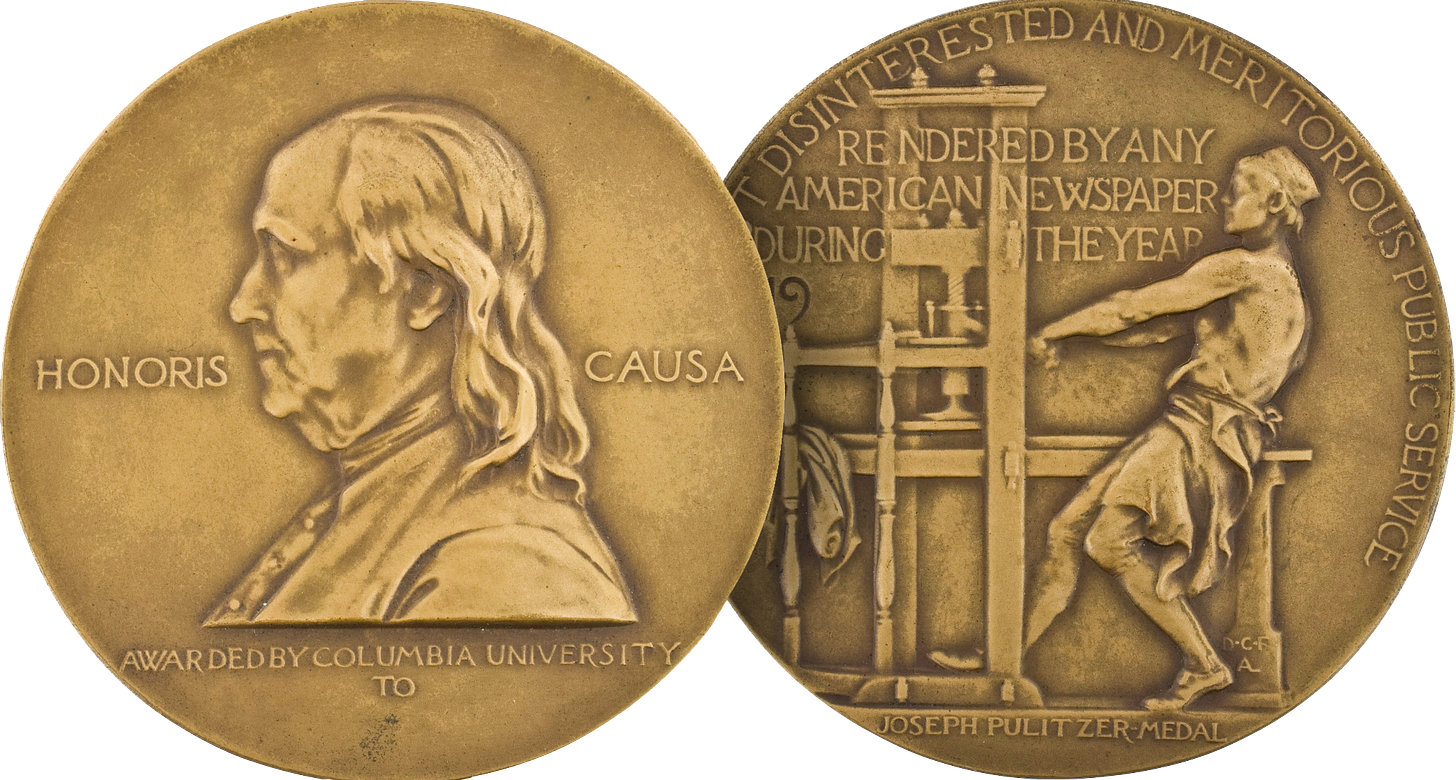
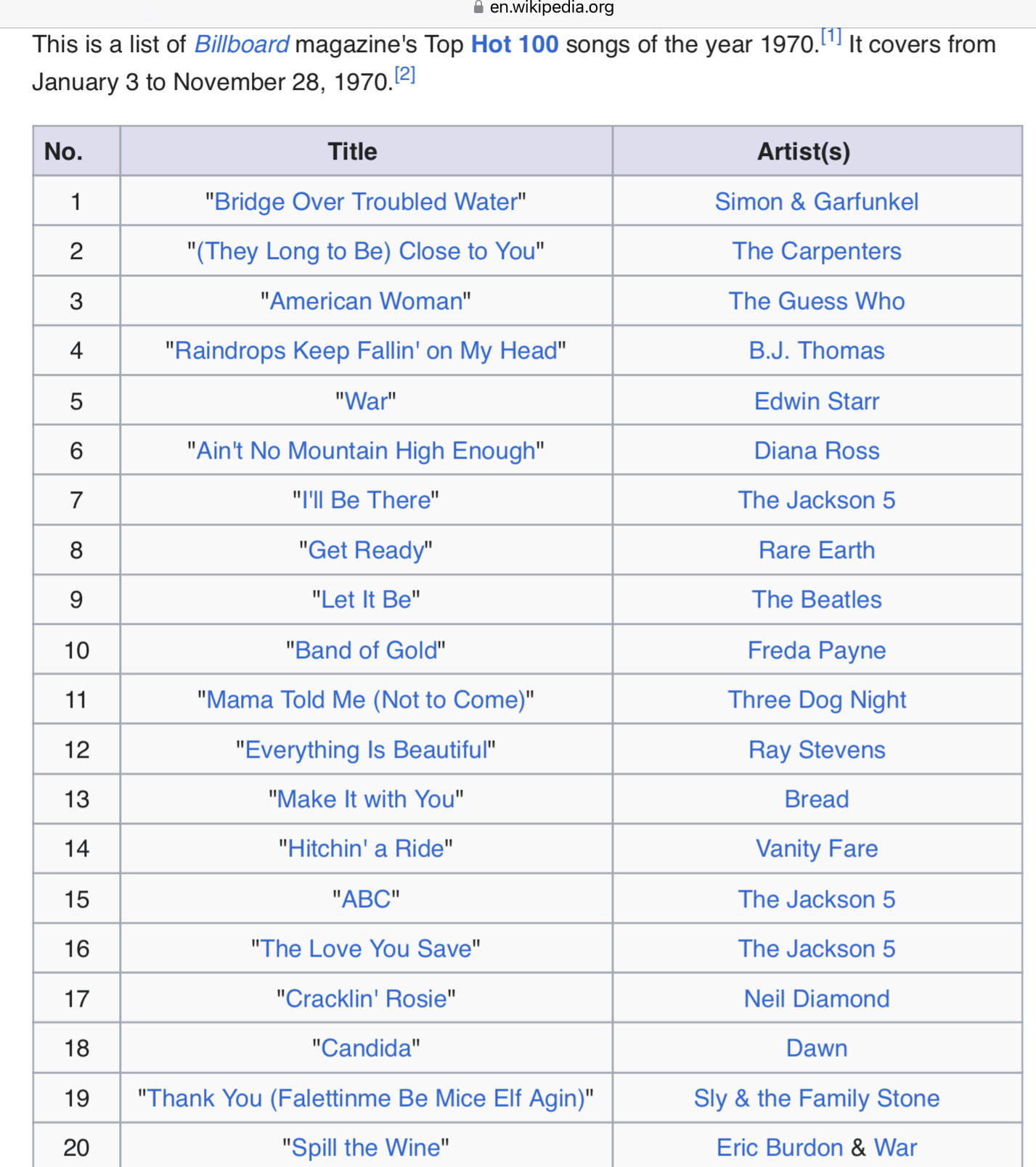
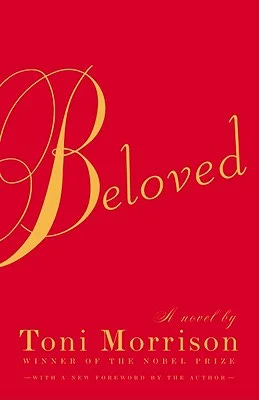

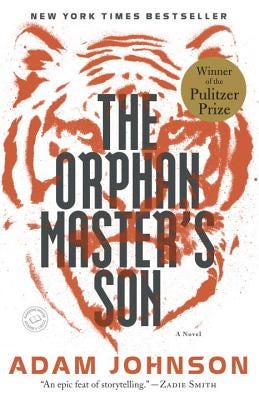
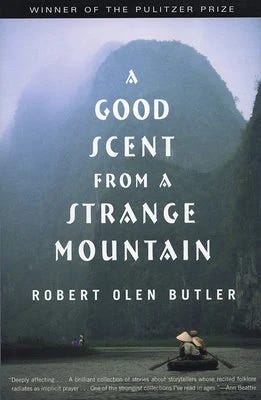
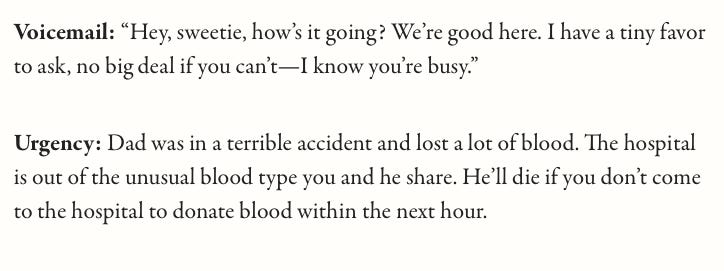
This was such a wonderful conversation.
Reading 43 is impressive...I think I've read 32. Some of the early ones don't look that tempting to read. It seems like they often used to give writers the Pulitzer for their lesser books--just look at Faulkner's two wins for his lesser-known titles, kind of the way Oscars seem to be given out for a body of work. Now it seems like they are better at zeroing in on a writer's masterwork. These writers are still working, so we can't say for certain, but it does seem like Kavalier and Clay, Gilead, Nickel Boys/Underground Railroad, and The Known World were awarded for these authors' very best work.